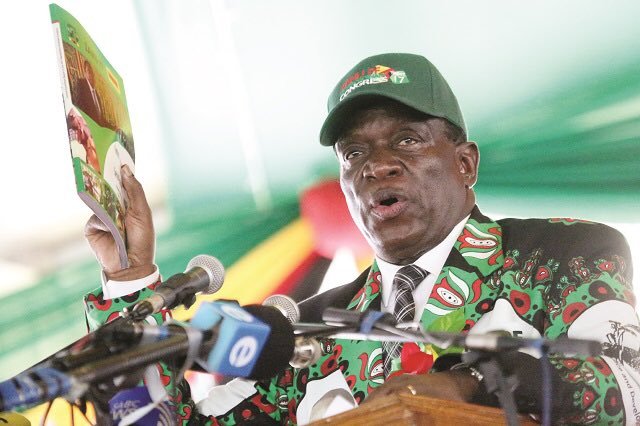
General Update
The state of judicial independence in Zimbabwe came under enormous public and international scrutiny following the parliamentary and presidential elections in July 2018. The stakes were at an unprecedented high, as the notion of democracy had taken reign in the electorate after 37 years. The highly politicized environment apparent in the country meant an intense need for Electoral Court and Constitutional Court judges to acquit themselves with an exemplary level of independence and transparency. Any perception by the citizenry that the judiciary was pressured by the executive branch or was biased toward any contesting parliamentary candidate could result in spontaneous unrest, potentially capable of destabilising the country.
"When judicial independence is put into practice in the discharge of one's duties as a judge, it becomes a loaded issue which is critical in the delivery of real and substantial justice." - Judge Edith Mushore, Zimbabwe
Expression
President extends retirement age of judges
The threat to the independence of the judiciary and the legal profession has been prevalent in the Southern Africa region. Recently, in Zimbabwe, chief justice Luke Malaba reached the age of 70, the age when a judge retires according to the Zimbabwean Constitution. President Emmerson Mnangagwa extended the term of the chief justice by five years on the ground that he was entitled to do so by a recent amendment to the Constitution. The High Court responded by delivering a three-bench ruling that it is illegal for the president to extend the term of the chief justice by five years. Justice Ziyambi Ziyambi said in a strongly worded statement that the ruling was "a typical case of overreach and the government was not going to accept the decision". He went on to say that the judiciary was captured by foreign forces. Minister Ziyambi Ziyambi further indicated that the ruling was baseless and had to be reviewedby the Supreme Court of Appeal.
Parliament&Judiciary are captured by the executive branch of government.
— Benevolence Mudenda (@BenevolenceMude) June 25, 2021
In Zimbabwe nothing is transparent & even when anomalies are picked, nothing happens to the wrong doers if anything, it is those who expose wrong doing who are thrown under the bus. We are led by thieves.
CSOs disagree with judicial retirement decision
Civil society organisations within and outside Zimbabwe are not happy with the decision. The Young Lawyers Association of Zimbabwe stated that Malaba and current Supreme Court and Constitutional Court judges cannot benefit from the amendment. Only judges appointed after the amendment can be eligible. Additionally, the Southern Africa Litigation Centre urges the government of Zimbabwe to respect the rule of law and the doctrine of separation of powers, which is a key component of a free and democratic society, especially considering that section 164 of the Constitution specifically entrenches judicial independence and states that courts must apply the law and the Constitution “impartially, expeditiously and without fear, favour or prejudice”.
"The only people who get bail at the magistrates’ courts are those aligned to the president and ruling party" anonymous former prosecutor tells Michelle Chifamba of The Africa Report
Biased court decision making affects journalists and political opposition
The lack of judicial independence and impartiality in Zimbabwean courts has led to journalists and political opposition member being unfairly arrested. Many judgements handed down by the courts show an unfair bias. Journalist Hopewell Chin’ono was remanded in prison for more than 40 days without bail for exposing corruption. The Minister of Health, who was accused of corruption, was not charged or remanded in prison. There is selective application of the law and magistrates are severely compromised by state interference. This has seen journalists and political opposition not being protected by the state, but rather prosecuted for whistle-blowing, while perpetrators of the state are going unpunished.
Another incident involved political leader and organiser of the 31st July anti-government protests against corruption and the country’s growing economic crisis, Jacob Ngarivhume who was arrested and charged with inciting the public to commit violence. Ngarivhume spent 45 days in prison and denied bail four times. The case of Chin’ono and Ngarivhume were indications of judicial bias. Their charges did not warrant them coming to court in leg irons and handcuffs, let alone being transferred to Chikurubi maximum prison.
Zim investigative journalist, #HopewellChinono has been granted bail but under conditions that include a ban on using social media. Can this be a reasonable requirement? Freedom of speech is enshrined in the constitution and promised by the Head of State. https://t.co/cWvoyVc0bL pic.twitter.com/99okRf1yZ0
— Peter Ndoro (@peterndoro) September 2, 2020
Positive step to protecting judicial independence
On the 18th of May, three days after the decision to extend the term of the Chief Justice, the Supreme Court heard the matter to determine whether the president acted within the ambits of amendment 2 of the Constitution. The court held that the decision by the President applied only to new judges of the constitutional court and the law was not applicable in this situation. The decision to extend the term of the chief justice was therefore reversed. This was a landmark decision as the courts made an independent decision, which was enforced. The President has even made a statement reaffirming the independence of the judiciary.